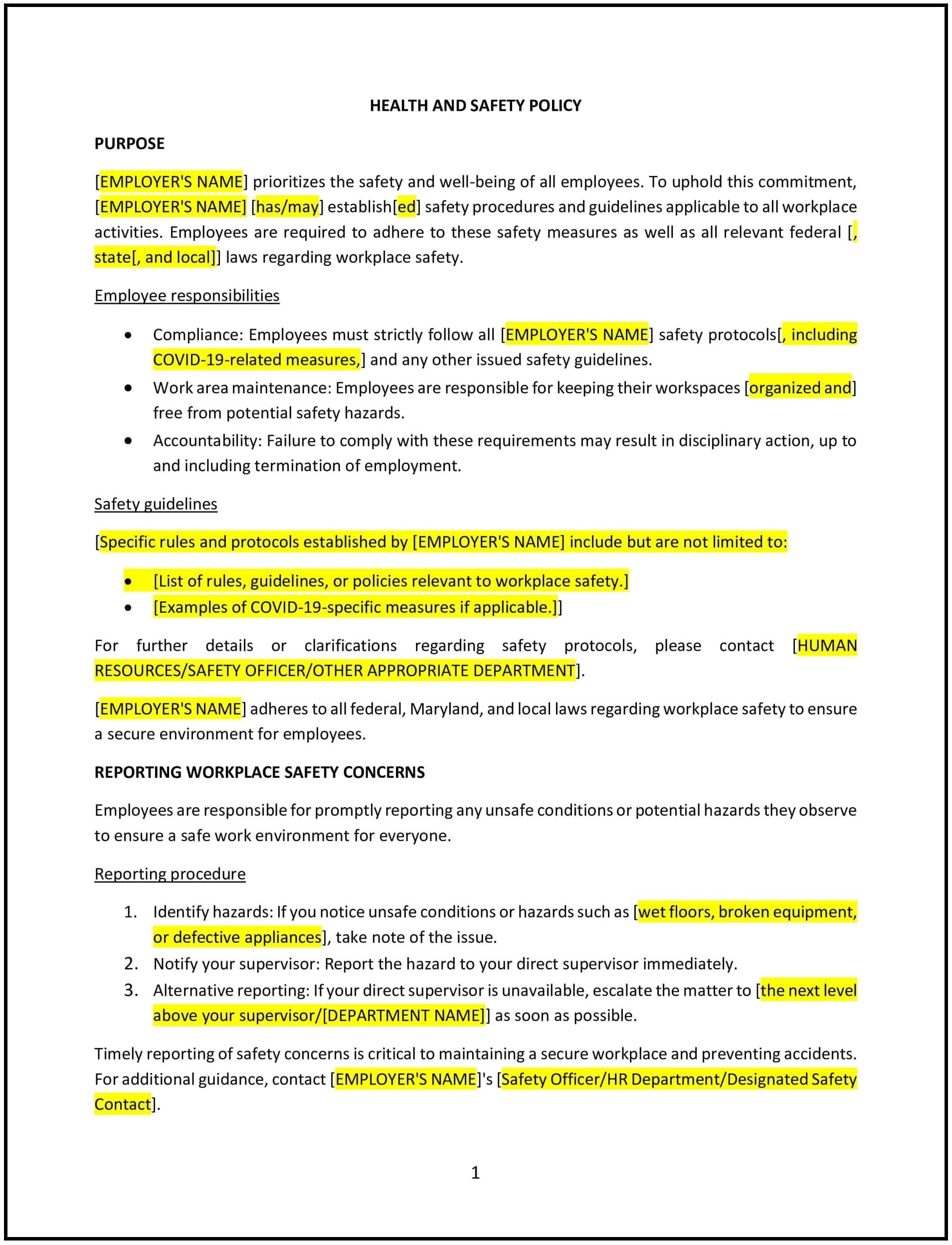Got contracts to review? While you're here for policies, let Cobrief make contract review effortless—start your free review now.

Customize this template for free
Health and safety policy (Maryland)
This health and safety policy is designed to help Maryland businesses create a safe and healthy work environment by establishing clear guidelines and procedures to identify, manage, and mitigate workplace hazards. It supports compliance with state and federal safety regulations and promotes a culture of safety and well-being.
By adopting this policy, Maryland businesses can protect employees, reduce risks, and improve workplace productivity.
How to use this health and safety policy (Maryland)
- Identify workplace hazards: Conduct regular risk assessments to identify potential hazards specific to Maryland industries or environments.
- Establish safety protocols: Outline procedures for preventing accidents, managing emergencies, and responding to incidents.
- Define responsibilities: Specify the roles of managers, supervisors, and employees in maintaining workplace safety.
- Include training programs: Provide mandatory training on health and safety topics relevant to the business, such as fire safety or hazardous material handling.
- Implement reporting mechanisms: Detail how employees can report safety concerns or incidents without fear of retaliation.
- Monitor compliance: Regularly audit workplace practices to ensure adherence to the policy and safety regulations.
- Reflect Maryland-specific considerations: Address state requirements, such as those related to hazardous materials, construction safety, or public health guidelines.
Benefits of using this health and safety policy (Maryland)
Implementing this policy provides Maryland businesses with several advantages:
- Protects employees: Reduces workplace accidents and promotes employee well-being.
- Improves compliance: Aligns with Maryland Occupational Safety and Health (MOSH) standards and federal OSHA requirements.
- Enhances productivity: Minimizes disruptions caused by accidents or safety issues.
- Reduces liability: Lowers the risk of legal or financial repercussions associated with workplace incidents.
- Builds trust: Demonstrates a commitment to employee safety and welfare.
Tips for using this health and safety policy (Maryland)
- Communicate clearly: Ensure employees understand their responsibilities under the policy through training and accessible documentation.
- Conduct regular drills: Practice emergency procedures, such as fire or evacuation drills, to ensure preparedness.
- Maintain records: Document all incidents, training sessions, and safety audits for accountability and regulatory purposes.
- Address industry-specific risks: Tailor the policy to include safety measures relevant to your industry, such as construction, healthcare, or manufacturing.
- Stay informed: Update the policy regularly to reflect changes in Maryland laws or workplace conditions.